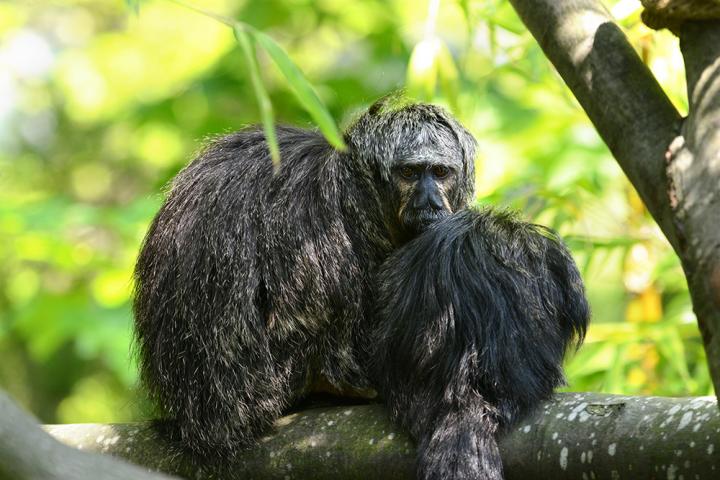Monitoring wildlife could limit risk of pandemics
Surveillance of potentially infectious organisms in wild animals and wildlife products could help limit the likelihood of emerging diseases.

Better testing and tracking of potentially infectious disease in wildlife is needed to reduce the risk of future pandemics, a team of experts has said.
Wildlife must be tested closer to areas of risk, technology should be better used and the international wildlife trade needs greater oversight to avoid another pandemic like Covid-19, according to scientists from the Wildlife Disease Surveillance Focus Group, which includes University of Edinburgh experts.
Previous outbreaks, such as SARS and MERS, were caused by disease crossing from animals to humans. The coronavirus responsible for Covid-19 is thought to have originated in bats and been passed to other wild animals before infecting humans.
The lack of knowledge about how the coronavirus shifted between animals and humans highlights the need for improved surveillance, experts said.
Risk screening
Scientists are concerned at the current absence of screening for potentially infectious organisms in wildlife trade, in legal and illegal settings. This includes wildlife consumed as food, transported or hunted as game, which could harbour viruses potentially harmful to humans.
Hunted and farmed animals often end up in wildlife markets in packed cages, with poor disease control and sanitation, making them a breeding ground for disease.
The experts argue for an increase in laboratories with capacity to test for pathogens – the organisms that cause disease – at or near locations where humans and wildlife interact. Currently, most facilities of this type are in North America or Europe, with a lack of capacity in areas with most risk of emerging infectious diseases, such as Asia and Africa.
Technology trial
Improvements in testing technology could help decentralise testing capacity, for example by using portable devices that can test DNA to rapidly detect harmful viruses in wildlife, experts added.
Researchers at the University of Edinburgh are to trial this sequencing technology, working with the governments of Zambia and Malaysia, in a project led by TRACE Wildlife Forensics Network, a UK NGO focusing on the application of forensic science to combat the illegal wildlife trade.
The Wildlife Disease Surveillance Focus Group also recommends the creation of a central publicly accessible database for recording the characteristics of animal viruses, to help monitor the risk of crossover to humans.
This would allow any scientist to see how pathogens are evolving, how common they are worldwide and to identify early mitigation measures against potential targets, including antiviral treatments or vaccines.
Finally, the group recommends establishing international standards for the wildlife trade, particularly around screening for wild animals and wildlife products that undergo transportation.
The Wildlife Disease Surveillance Focus Group includes wildlife experts from the University of Melbourne, San Diego Zoo and Washington University in St. Louis.
The group has outlined its recommendations in the journal Science.
We now have the ability to identify wildlife pathogens quickly, safely and locally using DNA sequencing; the university will be working with TRACE and partners in Africa and Southeast Asia to transfer these technologies and enhance their disease surveillance capabilities.
** The Roslin Institute receives strategic investment funding from the Biotechnology and Biological Sciences Research Council and it is part of the University of Edinburgh’s Royal (Dick) School of Veterinary Studies. **


